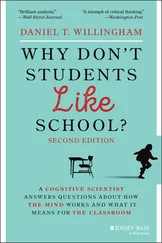In winter 1958, your first litter gave birth to another generation.
In spring 1959, your second litter gave birth to another generation.
By autumn 1959, the children of the dogs in your first litter were themselves getting it on. Their numbers increased. Your bloodline thrived. And over time your descendants proved the superiority of your lineage, its wonderfully modern superiority, and they were urged, males and bitches both, to get raunchy. Finally, in 1963, the day came when the entire platoon was composed of dogs belonging to your family tree. Their number: 801.
And how was Mao’s China doing?
It becomes necessary to touch on the nuclear issue. China’s strategic vision required that it possess nuclear capability. The decision had been made. This was a perfectly natural stance for Red China to take; it was, after all, the third player in the game, along with America and the Soviet Union. In 1958, a telling incident took place: the so-called “Second Taiwan Strait Crisis.” In August, China, under Mao’s direction, initiated a large-scale shelling of the small island Quemoy that belonged to Taiwan. Quemoy was located in Amoy Bay, off the coast of Fujian Province, and the Kuomintang had stationed members of its regular army there. Chiang Kai-shek’s forces intended to use it as the base for their counteroffensive against China. At the time, the only China America recognized as a state was the Republic of China on Taiwan, led by Chiang Kai-shek’s forces and the Kuomintang government. Obviously America couldn’t allow this reckless violence. Mao’s China was red . If Red China were to expand, red patches would start bleeding onto the rest of the Asian page in that ideological coloring book. Warning! Beware of Mao Zedong! The situation became critical. From summer to autumn, the United States considered the possibility of using nuclear weapons. The American military had spread nuclear arms across the entire Pacific. Bases on Guam, Okinawa, and Taiwan had been outfitted with secure installations to handle them. All right, then, why don’t we use these things? To contain Maoist China! America had boiled the complex situation down to a simplistic vision of “communism vs. capitalism,” and if nuclear weapons were what it would take, well, gosh darn it America was ready to do it. Mao, on the other hand, had summed up the situation in his own simplistic way: “Chinese socialism vs. American imperialism.”
That, basically, was how Sino-American relations stood.
In the end, actual conflict was avoided. But Mao had learned his lesson: fight nuclear with nuclear. There was simply no other way to push back against the American menace. And there was more. In an earlier age, when China had been on good terms with the USSR, it had been solidly protected by the Soviet Union’s “nuclear umbrella.” Yes—it had been a satellite nation. But now?
Can’t rely on ’em, Mao thought.
In fact, my dear Khrushchev, Mao thought. Nikita… your nuclear bombs are a menace from behind!
Khrushchev, for his part, wondered what Mao was getting all worked up about.
What’ll you do if nuclear war actually breaks out? What then? Man, this guy’s unbelievable. Here I am blahblahblahing about “US-USSR cooperation” to make sure we don’t end up stumbling into a full-scale war, and look at you. Idiot.
Look, Khrushchev thought—though he never voiced his thoughts. Look. Just leave world domination to us and the Americans. You can just chill, okay?
Khrushchev may not have said anything, but his actions showed very clearly what he was thinking. How wary he was of Mao. As a matter of fact, in 1956, China had already made up its mind to develop nuclear weapons. In 1957, the Soviet Union had at least outwardly projected a willingness to support China’s nuclear program by signing the “Sino-Soviet Agreement on New Technology for National Defense.” But the Second Taiwan Strait Crisis had made Khrushchev apprehensive about Mao. I mean, look at this guy, he’s actually doing this stuff! It’s dangerous. In 1959, Khrushchev scrapped the Sino-Soviet Agreement on New Technology for National Defense. The next year, he recalled the USSR’s nuclear specialists from China.
He completely cut off all nuclear technological support. If that led to a split between China and the Soviet Union, well, so be it. You can’t have everything.
Sorry, Mao.
Then, in 1963, something happened that brought about a definitive change in the situation. Astonishingly, the three nuclear powers—the United States, Great Britain, and the Soviet Union—signed the Partial Test Ban Treaty. The point of this action was to impress upon the rest of the world that that was it, no one else was going to get these things. And that was the last straw. Mao blew his top. China reacted by releasing a statement explicitly criticizing the Soviet state.
1964.
Two pieces of good news made China giddy. First, on October 14, Khrushchev was ousted. Mao howled with glee. Hah, serves you right, Nikita! Second, just two days later, on October 16, China’s first nuclear test was a success. We did this on our own! Mao cried. Eat our dust, losers!
Now China was a superpower too.
As soon as Mao’s relationship with Khrushchev came to an end—and as fraught as it was, it was still a relationship—he formed another, and this one, too, moved history. Mao developed a personal connection with Ho Chi Minh. This one wasn’t bad. Mao had been Ho’s only supporter during the First Indochina War, when Vietnam, which is to say the Democratic Republic of Vietnam, founded in 1945, battled for its independence from France. “Down with Imperialism!” Red China shouted, and made the Vietnamese army a present of 160,000 small arms. It trained some fifteen thousand Vietnamese to fight, turning them into professional guerrillas. It did Ho some other favors too. Ho remained grateful for this until the end of his life. He continued throughout to show his respect for Mao.
Naturally, the warm personal bond between these men affected Sino-Vietnamese relations, and this in turn had an effect on Sino-American and Sino-Soviet relations.
So what happened?
The chaos of the Vietnam War, aka the Second Indochina War.
Yes, at last we come to the Vietnam War. The infamous Vietnam War. A limited war fought on the Indochina peninsula: America’s quagmire. In 1964, John F. Kennedy was no longer the American president. He had been assassinated in Texas on November 22 of the previous year, almost a year before Khrushchev exited the stage. There was a crack, turbulence in the air, and he was gone from the world. Kennedy had been disinclined to get into a full-scale war, but not Johnson. Not Lyndon B. Johnson, former thirty-seventh vice president of the United States, now thirty-sixth president of the United States. On August 2, the Tonkin Gulf Incident took place. An American destroyer, claiming to have been attacked by the North Vietnamese Navy, which was part of the communist Democratic Republic of Vietnam’s military and was thus led by Ho Chi Minh, conducted a retaliatory strike. In fact, the original attack had been fabricated by the Americans.
1965. On February 7, the American military began bombing North Vietnam. As the bombing continued, the targets moved progressively farther and farther north…
So what happened?
Naturally, Mao-led China grew suspicious. What, ultimately, was America’s goal?
Where did it really want to end up?
What’s just above Vietnam to the north?
We are.
That was it. Mao decided that America was taking aim at China. American encirclement all over again. Ho sent out the SOS. On March 22, the National Front for the Liberation of South Vietnam, popularly known as the Vietcong—short for Vietnamese Communists—announced that it was “prepared to accept aid from its friends around the world.”
Читать дальше












